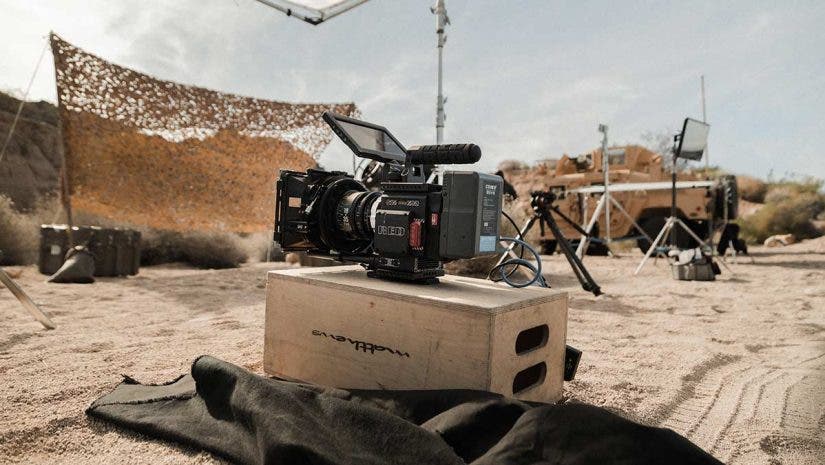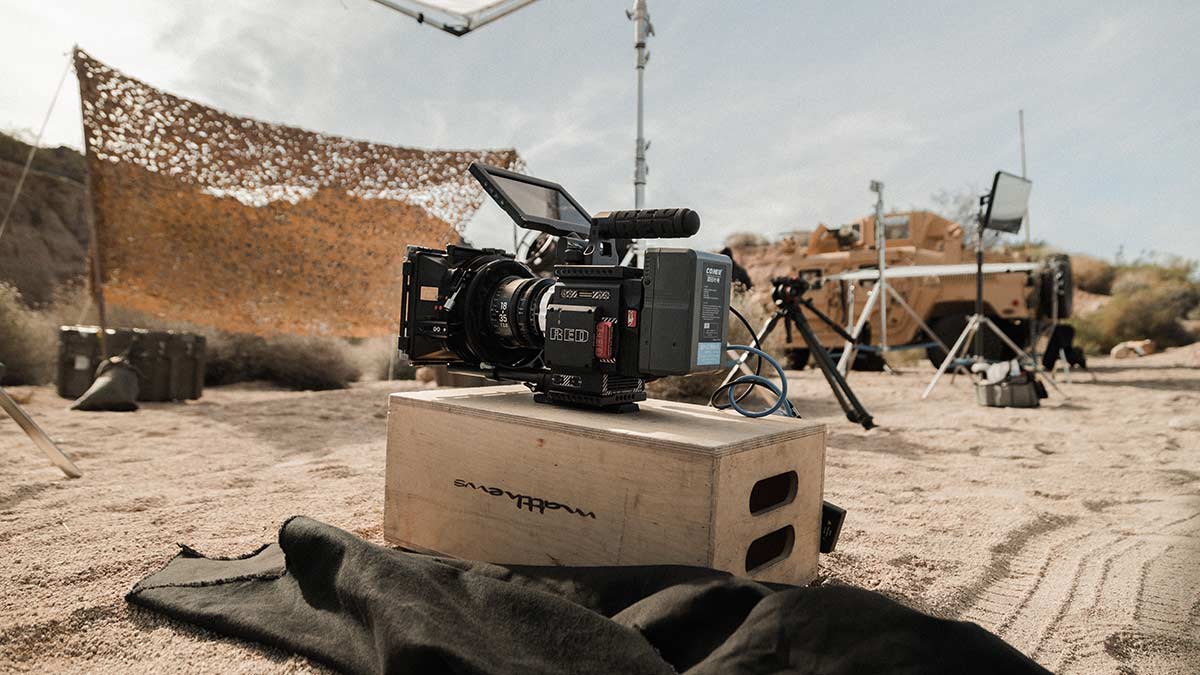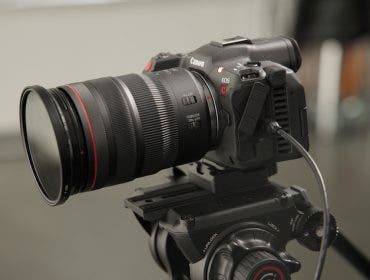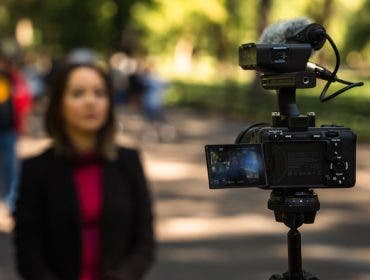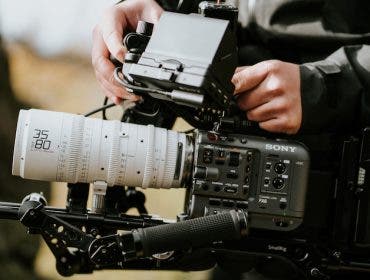Cinematographer or Director of Photography (DP or DoP) is one of the most highly regarded jobs in the film industry. Like the director, they are among the top most important people in the film creation process and are responsible for establishing a film’s overall visual impact.
Many aspire to be the eye behind the camera when shooting music videos, movies, TV shows, commercials, and many more. After all, the job entails having creative control over all the visual elements of the film through the direction of camera operations—from the composition of the scene and selection of video recording equipment to deciding on the shot style and adding special camera effects—and the lighting setup. And the pay isn’t bad, either.
If this sounds incredibly appealing to you and you think you have the artistic eye and willingness to do whatever it takes to become a cinematographer, then this article for you.
Tips for Becoming a Cinematographer
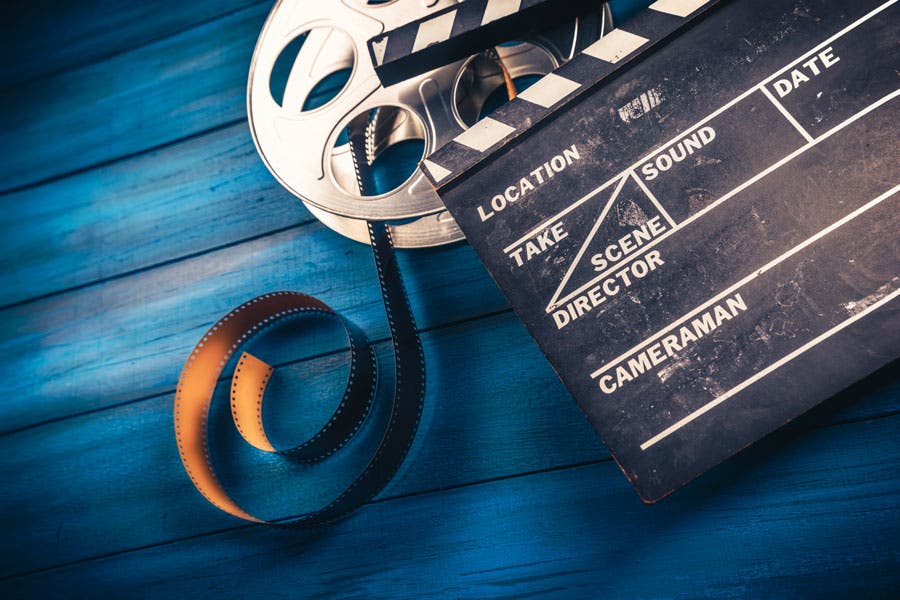
As with every other career, being a cinematographer requires you to slowly work your way up the film industry ladder. It definitely doesn’t happen overnight. In fact, you’ll have to take a couple of different routes before you can bag the second highest rank on the production crew.
We’ll help you out with these tips and guide you from being a mere hopeful to becoming a professional cinematographer.
- Learn the Basics
- Find Your Inspiration
- Spend Time on Film Sets
- Build Your Network
- Create Your Own Visual Style
- Search for Job Opportunities
- Start Cultivating Your Brand
- Continue Learning
Learn the Basics
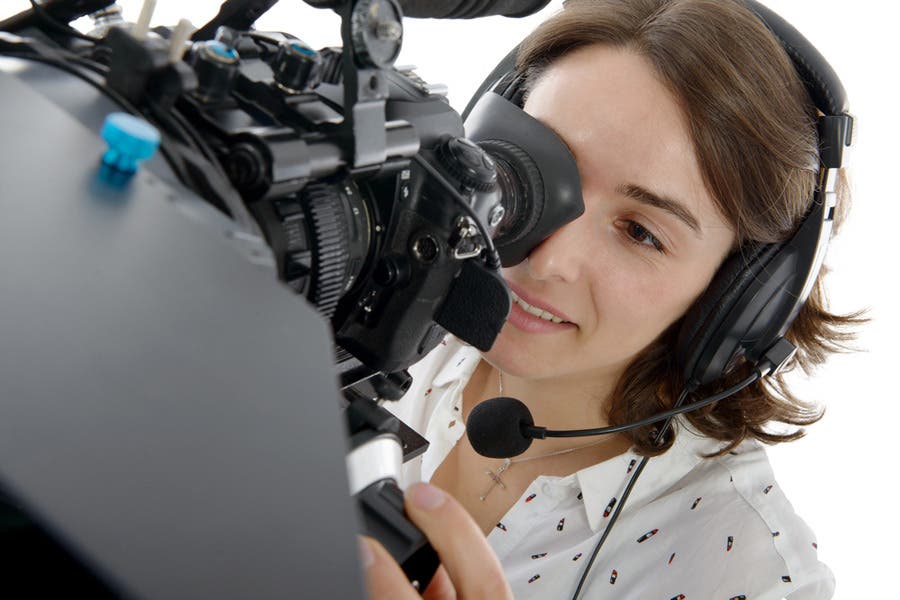
The first major step is to spend the next few weeks or months gaining significant knowledge, as well as technical and practical skills, that are required in cinematography. This, of course, involves learning how to operate different types of cinema cameras that can produce high-end video content. You’ll also need to study basic video compositional techniques, light and sound design, film and video editing, and many others. After all, cinematography is more than just about manning the camera—it’s also about understanding how the entire process of movie production works.
Nowadays, you may be able to learn anything you need to know by simply taking free online photography classes and watching online video tutorials. But to start off on the right foot, you may want to get formal education and earn certification from an accredited videography workshop.
However you decide to further your knowledge, remember that your main goal is to gain a pretty good understanding of the production process, film equipment and techniques, what separates a good shot from a great shot, and what will be expected of you as you delve deeper into the world of filmmaking.
Find Your Inspiration

Once you have a good grasp of concepts and tools required in cinematography, you can pretty much start putting them into practice. This is where you can finally start building yourself up as a budding cinematographer. But before you take the next big steps, take time to reflect and prepare yourself for what’s to come.
Know that there’s no single path to being a cinematographer. Aside from being equipped with the skills, equipment, and the artistic eye needed to create amazing films, you’ll need to really want to do it if you want to last long and hopefully become successful in the field.
Perhaps you can find inspiration in existing films with Oscar-nominated cinematography. At the same time, figure out what it is you like doing: Is it creating meaningful films? Telling a breathtaking story with moving pictures? Being part of a huge production team working for a common goal? Whatever it is that made you want to get into cinematography, hang on to it and use it to inspire yourself to grow and follow your newfound passion.
Spend Time on Film Sets
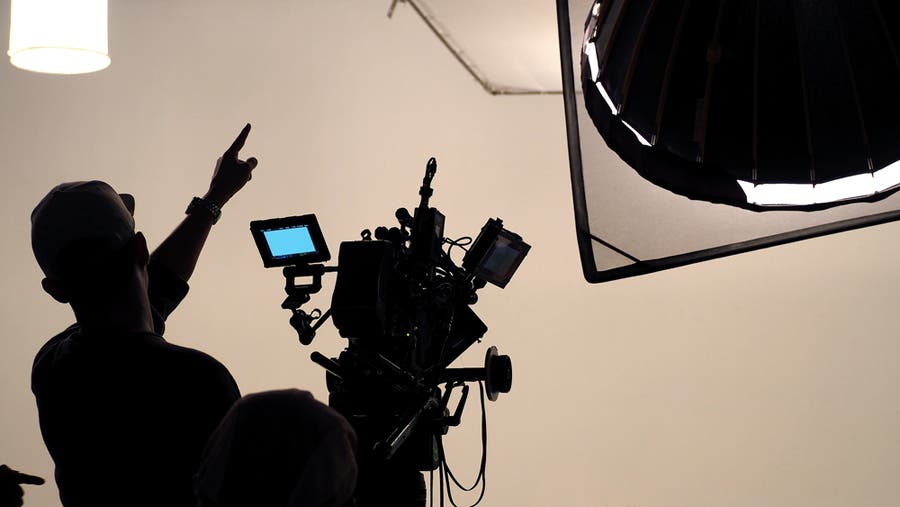
Experience will always be one of your best teachers. Before you even start looking for work, spend time on film sets. It’s the easiest way to see the concepts put into practice—minus the pressure. Many workshops will expose you to how it works behind the scenes, and being able to see how the pros—the cinematographers, camera operators, directors, set designers, and the rest of the production crew—do it can teach you a lot that workshops won’t.
For longer and more regular exposures, apply as an intern or PA (Production Assistant). Once you get accepted, prepare to immerse yourself into the real world of filmmaking, which means you’ll also get to see the ugly side of it—from battles for creative control to diva actors and grueling work hours. Each lesson, skill, and experience that you pick up during this time will contribute to your overall expertise as an up-and-coming cinematographer.
Expand Your Network

In a competitive industry such as film, it helps to know a lot of people who can help you with the ins and outs of it. Success in this field sometimes depends on who you know, so the very same people may be the secret to finding success. Prepare to network and cultivate relationships with as many people as you can in the industry. In fact, it helps to start connecting as soon as you start attending workshops. Stay in touch with film school friends and teachers, offer help on local projects, and make yourself available for referrals.
Remember, the film world is pretty small. Once you start working, you’ll be spending a lot of your time getting repeat work from a director friend or getting referrals from people you know to new production companies.
Create Your Own Visual Style

When working with a full film production crew, you’ll find that the director usually has the final say about everything—including the shots in the storyboard. You are usually involved in making artistic decisions for the film’s overall visual impact, but a huge chunk of your responsibility will be focused on directing the camera operator (or operating it yourself) to achieve the required shots.
Still, cinematographers get noticed and hired partly for their artistic vision, which you’ll get to show off in your promotional work. You’ll probably end up mimicking other people’s styles at first, which is completely normal, but the secret to standing out is to know how you can make existing visual styles your own.
It’s also okay to have changing styles as our tastes naturally develop over time. Keep learning how to be a better storyteller through experience and education while following your instincts as an artist, and you’ll eventually be acknowledged for your own work.
Search for Job Opportunities
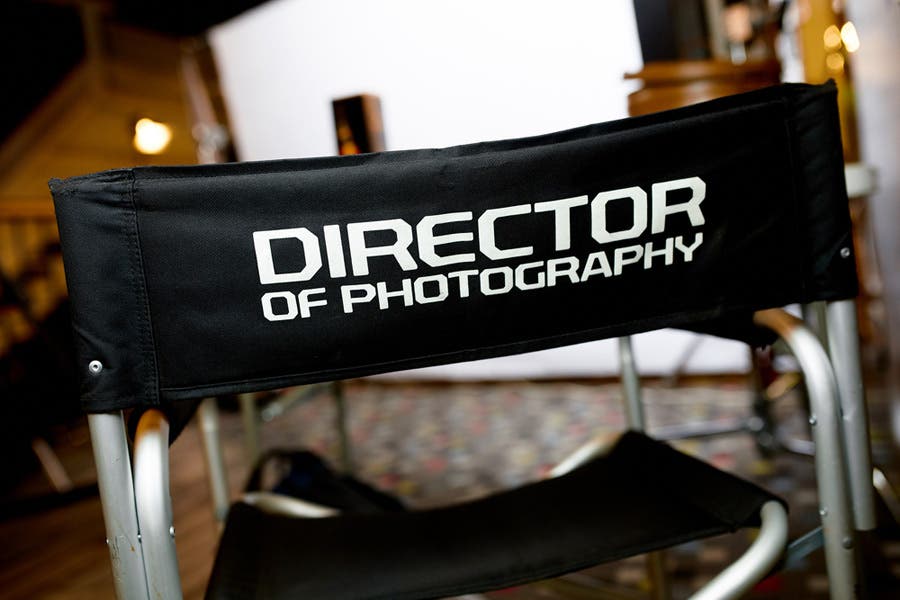
If you’re lucky, work will find you. But as we know, it’s usually the other way around. It gets more complicated once you realize that getting hired usually requires you to show great work first, which is obviously difficult to do on your own. However, it’s no reason to stop trying.
Being around people you’re on the same level with helps increase the chances of finding work. This is where that previous tip about staying in touch with former colleagues can give you an advantage. Continue looking for fellow aspiring cinematographers, as well as directors, producers, art directors, production designers, and anybody else who loves making films.
While you build better relationships with them, you have the opportunity to create films together in your free time, which should help expand your portfolio. And when they are hired, you can assure that at least one of them will be calling to refer you to their director. We all prefer to work with people we know, after all!
Start Cultivating Your Brand

After your first few gigs, you’ll need to develop and cultivate your brand. This will help you establish your identity and stand out among the rest once you’ve joined the race. Create a professional website or online portfolio where you can show off demos of your best work, and make sure you update it with your latest projects and contact information so clients can reach you for potential partnerships.
Also, consider posting your stuff on Facebook and Instagram. These top two social media networks are great platforms for promoting yourself or your business as they make it super easy for you (and others) to share your media and communicate with potential clients. And with a combined daily traffic of billions, you’re sure to increase your following the more actively you update your pages with your desired promotional media.
Continue Learning

With the ever-changing world of technology influencing the development of more high-tech film gear and techniques, your success and relevance in this field depends on your knowledge about the latest trends as well as your ability to adapt and use to them to your advantage. Pursue higher education, take more challenging jobs, find inspiration, and continue learning from both your superiors and promising new cinematographers.
Perhaps the most fulfilling parts of being a cinematographer is being one among the many different types of creatives working together for a project and seeing how the interesting mix of skills, knowledge, and visual styles produces a new work of art.
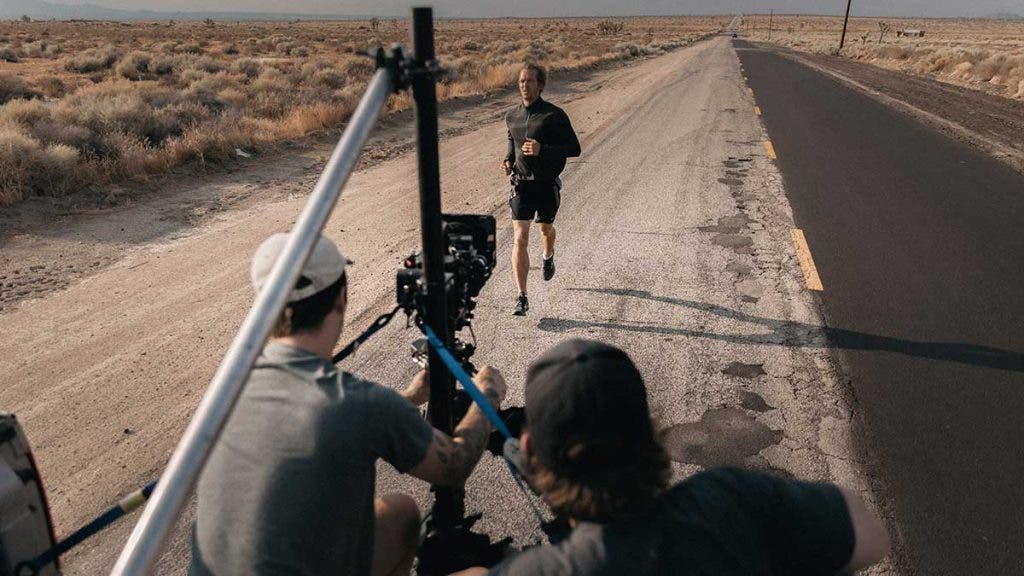
Cinematographer Career Frequently Asked Questions
Cinematographer vs DP (Director of Photography): What’s the difference?
While the names are sometimes interchangeable, there can be differences between a cinematographer vs DP by region. Both titles refer to the person in charge of the camera and lighting teams and both answer to the director. Some people believe that a Director of Photography, or DoP or DP, generally works on bigger projects than a Cinematographer, while other people say it is entirely opposite.
One important distinction: a “videographer” as a title is not interchangeable with DoP or Cinematographer. A videographer is generally either a one-person crew or has only a few people to support them. Mostly this term refers to people who film events, such as weddings and conferences, corporate videos, or image films.
How hard is it to become a cinematographer?
Becoming a cinematographer requires years of training and is not something I suggest you just jump into without having learned quite a bit through experience in both the camera and lighting departments as well as through your own study of the subject. Learning how to set up and operate several different cinema cameras and knowing different lenses and their looks takes a lot of time.
Working as a camera assistant early in your career will give you a great hands-on education in the technical aspects of the camera. You will also get to see how other cinematographers work and learn many tips and techniques along the way.
I also suggest you work on the lighting side as an electrician, sometimes referred to as a “spark”. You’ll see how to light a scene and understand what goes into the different stylistic choices and how to achieve them at different budget level. This will be a huge help when you need to speak intelligently to your gaffer. Throughout this, I suggest shooting your own projects, working on your own style, and learning what you want to say through your work.
How much does a cinematographer make?
A-list cinematographers working on big budget Hollywood films earn anywhere around $25,000/week and up. Rates for cinematographers can vary wildly depending on how long you have been working, where you are working, and what types of projects you are working on. A brand new cinematographer trying to build their reel may take on projects for free just to get the experience and to be able to show potential future clients what they can do. A solid day rate for an experienced Cinematographer is around $1,500.00 to $2,500.00.
Do I need to go to film school to be a cinematographer?
This is a highly debated question with a resounding answer of “it depends”. I personally did not go to film school and I know many people who also did not go to film school who are working as cinematographers and doing excellent work.
You can definitely learn as you go, working your way through the ranks. I also know many people who did go to film school and learned a lot of theory and got to practice their craft. Plus, the film school graduates always say that one of the best things about film school is the connections you make. Your classmates will eventually go on to be directors, producers, other cinematographers, gaffers, or other positions in the film industry and these contacts can be potentially very useful in both the short and in the long run.
What qualifications do I need to be a cinematographer?
While having a degree or even a masters in film is certainly never a negative, it is not a requirement in most markets. That being said, if you participate with one of the big associations of cinematography, such as the American Society of Cinematographers, the British Society of Cinematographers, or any other well-known, exclusive, and highly regarded organizations, that will be useful in getting you work that you would want to do.
